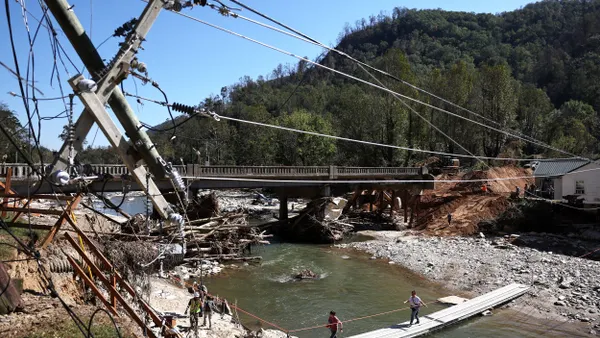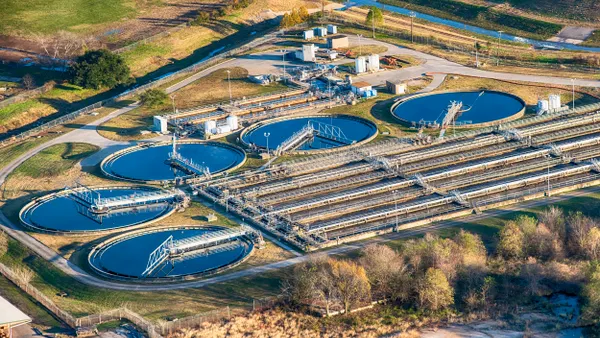Dive Brief:
- Four tribal communities within Kongiganak, AK have developed an advanced microgrid tied to residents' thermal stoves that has slashed their heating costs, according to the Fairbanks Daily News-Miner and others. Residents report saving up to 50% on their heating bills.
- The village of Kongiganak and three other villages are members of Chaninik Wind Group, a collaboration to build new energy systems. The four villages currently get their energy from a hybrid system of diesel and renewables.
- Kongiganak gets about 25% of its power from five wind turbines. Excess energy from the turbines is diverted to residents' thermal stoves via the microgrid.
Dive Insight:
The four small communities formed the nonprofit Chaninik Wind Group in 2005 to develop a plan to increase the communities' resilience in the face of rising fuel costs. They also wanted to begin harnessing the area's renewable resources. The group's initial goals were to lower residents' energy costs, reduce the communities' diesel fuel dependence and create opportunities for economic development.
Kongiganak's leaders recognized what an increasing number of leaders across the U.S. are realizing: Small communities pooling their resources can more easily take on big projects and achieve things that each community itself could not on its own.
Chaninik Wind Group received Department of Energy funding through the Tribal Energy Program in 2010 to build the infrastructure necessary to take on this project. The project involved installing smart electric metering in 500 homes, installing thermal stoves in 90 homes and creating a regional service center in Kongiganak. The meters offer citizens the ability to be more aware of their personal energy use and monitor it, in addition to switching to the lower-cost wind power when it is available. The customers are linked to a smart microgrid.
Finding lower-cost fuel options was important to the villages considering that at the start of the project, 29% of the population was living below the poverty level. Residents struggled to afford their electricity and the prohibitively expensive stove oil needed to heat their homes. The new microgrid system not only addresses customers' cost concerns, but also provides new jobs.
The wind-diesel project aims to displace 200,000 gallons of diesel fuel for both power and heat. Under the new system, light winds displace diesel fuel used to generate electricity, and moderate to strong winds produce excess energy to heat homes through the connected thermal stoves. This project has been deemed a success not only in saving residents 30% to 50% on their energy and heating costs, but also in its ability to harness clean energy and integrate it into a scalable system. Plus it has prompted economic development in an area of great need.











